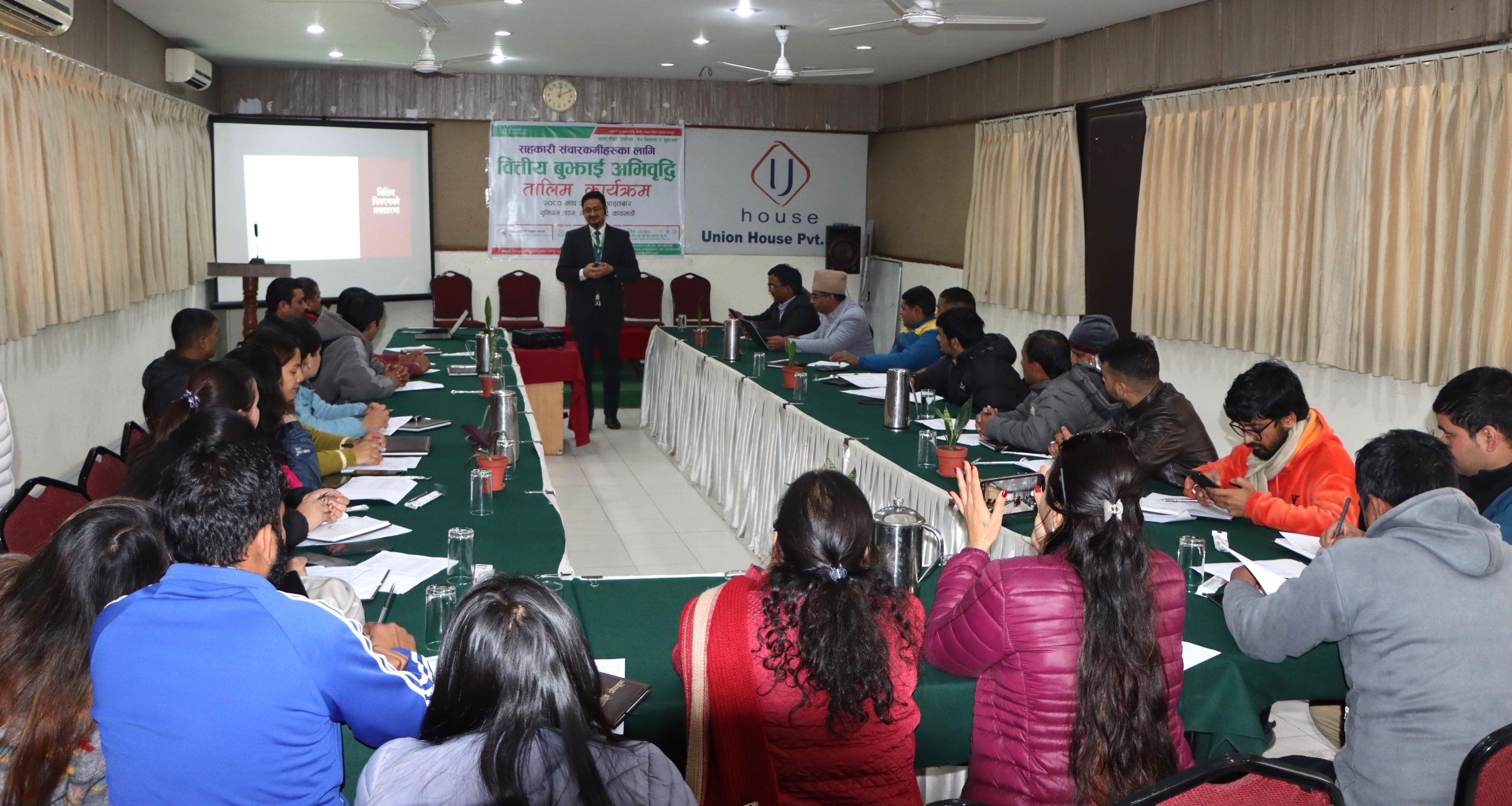Community and member oriented cooperatives are better than banks

Kathmandu : Uddhav Sapkota, president of Bagmati Province Savings and Credit Cooperative Association (Bagmati Province), has said that the state should help when there is a problem in the cooperative.
Organized the Bagmati Provinc Project, National Cooperative Bank’s technical support and the Nepal Cooperative Journalist Society (CJN) management of the ‘Financial Understanding Enhancement Training for Journalists’, he said that some countries including Korea have helped the government when there are problems in cooperatives.
He said that the current problem can be solved if the state and campaign go together during the crisis. Chairman Sapkota said that the cooperative organizations which are operated with community and member focus are operating better than banks.
“There was a problem with the lack of uniformity in the understanding of cooperatives among the government employees and people’s representatives,” he said. Saying that there are many examples of economic and social transformation in some countries of the world through cooperatives, he claimed that cooperatives can also bring about economic and social transformation in Nepal.
He said that only some large cooperatives in urban areas and cooperatives operating outside of the principles of recognition and value are experiencing problems now. He is of the opinion that if the owners of the co-operatives who commit mischief can be taken into action rather than protecting them, public trust towards the co-operatives will increase.
In the event, General Secretary of Bagmati Province Jivasraj Khadka said that this training was organized with the aim that there should be unity in the understanding of cooperatives. Stating that the cooperatives have been accused in all directions, he also said that there is no proper analysis of the condition of the cooperatives.
He also argues that not all cooperatives are in trouble. Not all cooperatives are bad. There have also been wrongdoings by some co-workers. It is not possible to see everyone in one place,” he added. Stating that there should be uniformity in cooperative understanding, he said that cooperatives should be analyzed with common understanding.
Badri Kumar Guragai, Chief Executive Officer of National Cooperative Bank, gave training on financial analysis of cooperative organizations. The journalists were trained on the importance of pulses in cooperatives, cash flow, accounting comments and other financial analysis. CEO Guragai said that the financial statement mentioned in the report of the cooperative can be ascertained from the UDN number of the audit.
During the training, Keshav Prasad Dahal, Chief Executive Officer of Bagmati Province, while giving training on the financial management of cooperatives, said that there would be no problem in cooperatives where regular savings account for more than 30 percent of the total savings. What are the financial resources within the financial structure of the cooperative? He informed that it will maintain the stability of the organization.
To build a sustainable organization, it should be necessary to regular savings should be at least 30 percent, wealth creation savings should be at least 15 percent, periodic savings should be at most 20 percent and business savings should be 35 percent, informed CEO Dahal.He said that since cooperatives are member-based businesses, 33 percent of the total members should have availed loans from the organization. He said that cooperatives are necessary for those who do not have access to banks and cannot manage their daily lives with their earnings alone.
34 journalists working in different media houses were present conducted in the training under the chairmanship of CJN President Kazi Shrestha.
